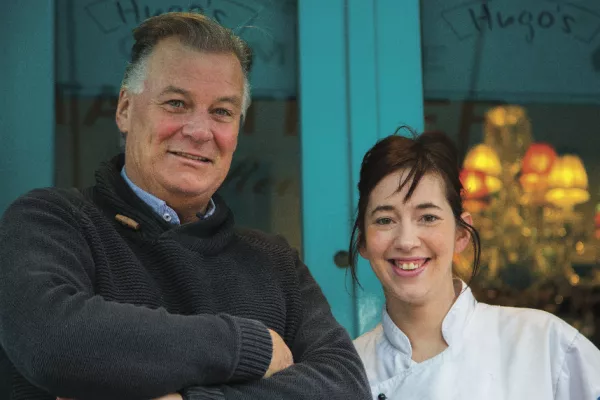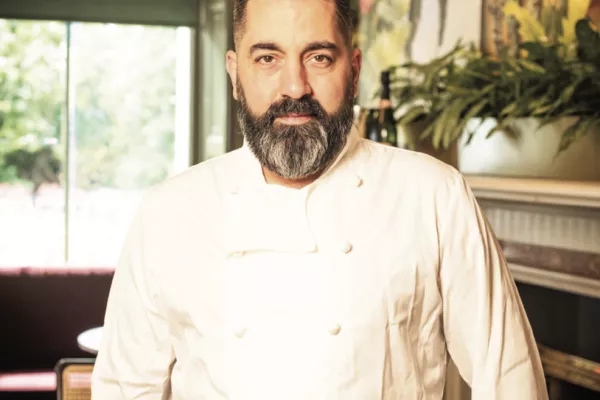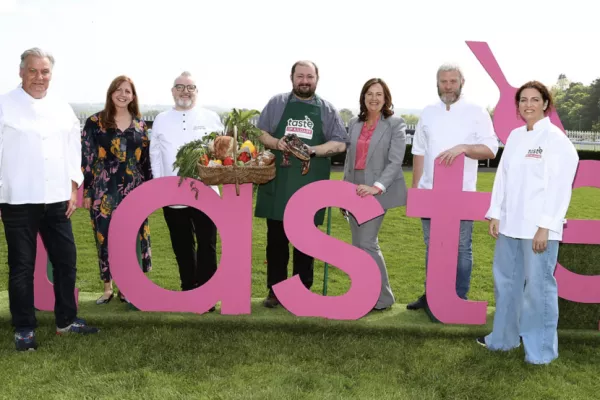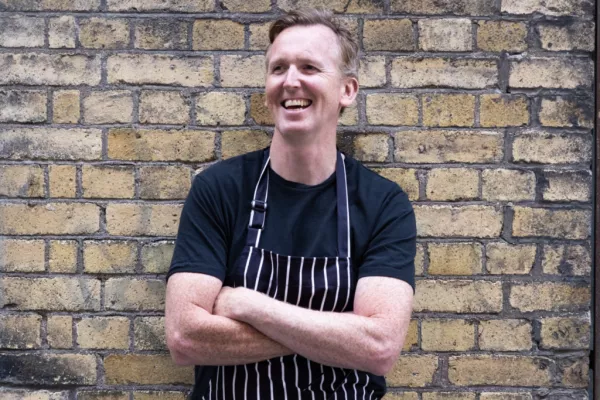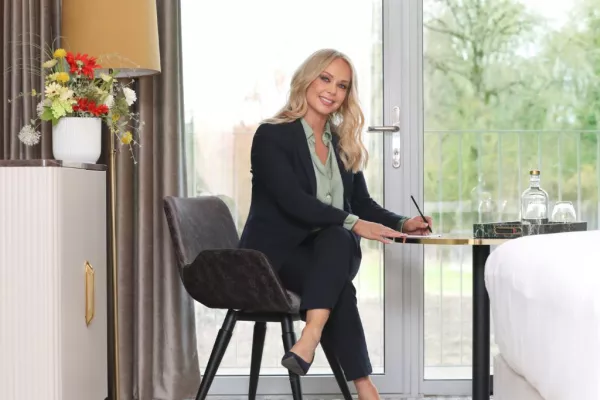Exclusively for Premium Plus and digital website members, Hospitality Ireland presents a piece originally featured in the February 2017 issue of our print publication in which Irish celebrity chef and proprietor of Dublin's L'Ecrivain restaurant Derry Clarke talks to Margaret Roche, who was head chef of Hugo's Restaurant of Merrion Row at the time the interview was conducted.
Don't currently subscribe to Hospitality Ireland? You can read the interview now if you sign up for a Premium Plus subscription, which is FREE for 30 days. Click the SUBSCRIBE button at the top of the page for details on how to sign up.
Derry: So Margaret, how did it all start for you in the restaurant business?
Margaret: My aunt owned a pub called Maxcamore Inn near Courtown in Co. Wexford, so I worked there during the summer from age 14, just doing the dishes, cleaning and so on, and I loved the buzz of the kitchen. I went on to do a professional cookery course in DIT Cathal Brugha Street for two years, which I also loved. It was fast-paced with lots about standards and systems in a kitchen, as well as a work ethic.
Derry: You worked for six months in London as part of your education towards being a chef. Would you recommend travel to young chefs?
Margaret: Yes, I worked at the one-star Arbutus in Soho, London. The initial move is the tough bit, but it’s just about biting your lip and doing it. It’s so scary. I went into a hectic kitchen full of male chefs in the middle of London. It's so rewarding to get through even six months. I was very well looked after. The hours were crazy, it was a tiny kitchen, but a really great experience overall.
Derry: I believe you worked under Alain Roux at the three Michelin-starred Waterside Inn in Berkshire. How was that?
Margaret: Yes, I was there for three years. The Waterside Inn has 30 chefs. The kitchen is immaculate. It has a French style of cooking, particularly with the sauces. You really would notice the difference between Arbutus having the one star and The Waterside having three. I left The Waterside on very good terms. Soon after leaving, I decided to go to Australia to work for six months, where I did a few stages. Then the opportunity came up soon after to come work as head chef at Hugo's.
Derry: Hugo's seems to be a very busy restaurant. How are you finding leading it?
Margaret: Yeah, it's very busy and can be hectic as it's open seven days. I guess it took quite a while after I came in to put my stamp on it, to put the systems I wanted in place. However, looking back from when I started to now, I'm very proud of where I have brought it, and I’m very excited about next year. The team we've built is strong, we know each other now. When I started, the guys were great, but they'd come from different training and backgrounds in cooking, so that made it hard initially. I try to keep the menu as tight as possible – six starters, eight mains, six desserts. We could probably do a little less in that regard. Lunch is very simple here – in and out. It's a very corporate area around here, and people just want to eat quickly, so we keep it simple.
Derry: A lot of places seem to have blurred the lines between lunch and dinner now, with a lot of what I’d class as dinner dishes appearing on the lunch menu. Would you agree?
Margaret: Yeah, maybe people are overcomplicating their lunch menu, mixing it up a bit too much.
Derry: "Female chefs" is a topic that is constantly under discussion in the industry. Do you think there's an imbalance of male to female chefs? And if so, why do you think that is?
Margaret: I'm not quite sure why it is the case. I would know the likes of Grainne O'Keefe and Aoife Noonan well, both of whom are doing great. Of the girls I went to college with, only two or three are still in the business. I suppose the hours play a big part in putting women off, and they may also want to start a family. There's only a handful of female head chefs in the whole country, so there is definitely a shortage.
Derry: So do you think we should start looking at ourselves as an industry in relation to trying to reduce the hours?
Margaret: I think there is a need for better systems. It needs to be more "routine", which I think it can be. Like, here, I try to do two early shifts, two late shifts and a split. I try to work with the staff in the kitchen in relation to hours as best as I can. I remember when I first started I was terrified to ask for a day off, so I didn't.
Derry: But then again, the hours are the same for the male chefs, so maybe it is more to do with wanting to start a family?
Margaret: Probably, yeah. It's great that kitchens are now easier places to work than they used to be. It's such a refreshing change and makes the industry so much better.
Derry: You seem happy at Hugo's, would that be correct? Why did you decide to leave the Michelin star side of the business to go back into the bistro side of things?
Margaret: Yes, I love it here. To be honest, I really enjoyed the experience of fine dining in the Michelin-starred places where I worked, but I've always loved the rustic side of cooking that bistro brings. I think working with pastry under Paul Kelly has served me well for how to present food, as well as shapes and textures, so I brought that as well.
Derry: Do you have any interests outside of working in the restaurant?
Margaret: I went back to playing camogie not too long ago. I would have played years ago, so I'm back playing. I play for my local village. I also love running. You have to learn how to manage your days off and be able to switch off from working in the kitchen.
© 2019 Hospitality Ireland – your source for the latest industry news. Interview conducted by Derry Clarke. Click subscribe to sign up for the Hospitality Ireland print edition.
